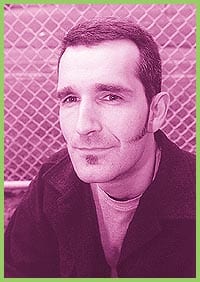Dean Behrens says we’re blaming ourselves for getting AIDS.
“A number of years ago, HIV-positive individuals suffered from a number of stigmas. One was the stigma of being gay. In that sense, being HIV-positive and gay is easier. But back in the ’70s and early ’80s, nobody knew about this disease. If you were HIV-positive, people were sympathetic, they wanted to help you.
“Today, people know about HIV, they know about safe sex, especially if you’re a gay man. So if you become HIV-positive, they ask, ‘How stupid can you be?’ It’s not just other people blaming us for being HIV-positive, it’s us blaming ourselves.”
Behrens, a professor at the University Of Toronto, teaches a course in the sociology of AIDS, and studies how people diagnosed with HIV change their relationships and establish support networks.
He says the lack of sympathy leads gay men who learn they’re HIV-positive to shut themselves away.
“We know that individuals tend to self-isolate when they’re newly diagnosed. It’s harder for them to get information on treatment, on drugs. Sometimes, individuals make mistakes. We have to be open enough, sensitive enough, to say that’s okay, we’ll still be there for you.”
It’s this sort of isolation that makes Behrens especially worried about the rise in HIV infection among gay men. Behrens says recent studies in Toronto and Ottawa have shown much of that increase to be among gay men aged 35 to 40. But there has also been a marked increase among women and youth.
Behrens attributes the rise partially to an overconfidence in new treatments, esepcially the cocktails, and partially to people being tired of constantly thinking about safe sex. But Behrens also says that many gay youth simply have no personal experience with HIV.
“I think there’s also the issue for gay and bi youth that they don’t know that many people who have HIV and are suffering. They didn’t see my friend die a slow and painful death. They don’t see my other friends struggling with their drug regimen.
“We have to make people realize that HIV has not gone away, that it is a physically, emotionally painful disease.”
It was Behrens’ own encounter with AIDS while working on an MBA at the University Of British Columbia that motivated him to move out of business administration.
“I had a friend who told me he was HIV-positive and it was shocking. My jaw dropped and I thought to myself, ‘How do I treat him now?’ and I realized, ‘You idiot, you treat him the same way as before.'”
Behrens transferred to a Pittsburgh university for his masters and a PhD thesis which he says was the first academic look at support networks for the HIV-positive. While there, he worked for the Pittsburgh AIDS Task Force, which led to another revelatory encounter with a client who died from the disease.
“I look at the relationships among people and I know how to measure them and analyze them. I realized that HIV and AIDS would be a very interesting area to apply that to. It’s been one of the hardest things I’ve ever done and also one of the most rewarding.”
Behrens joined the U of T faculty in 1997, and has been teaching his AIDS course for two years. Enrollment has grown from 32 students to what he expects will be 140 in September. Behrens also won an Outstanding Teaching Award this year, as chosen by students and other faculty.


 Why you can trust Xtra
Why you can trust Xtra


